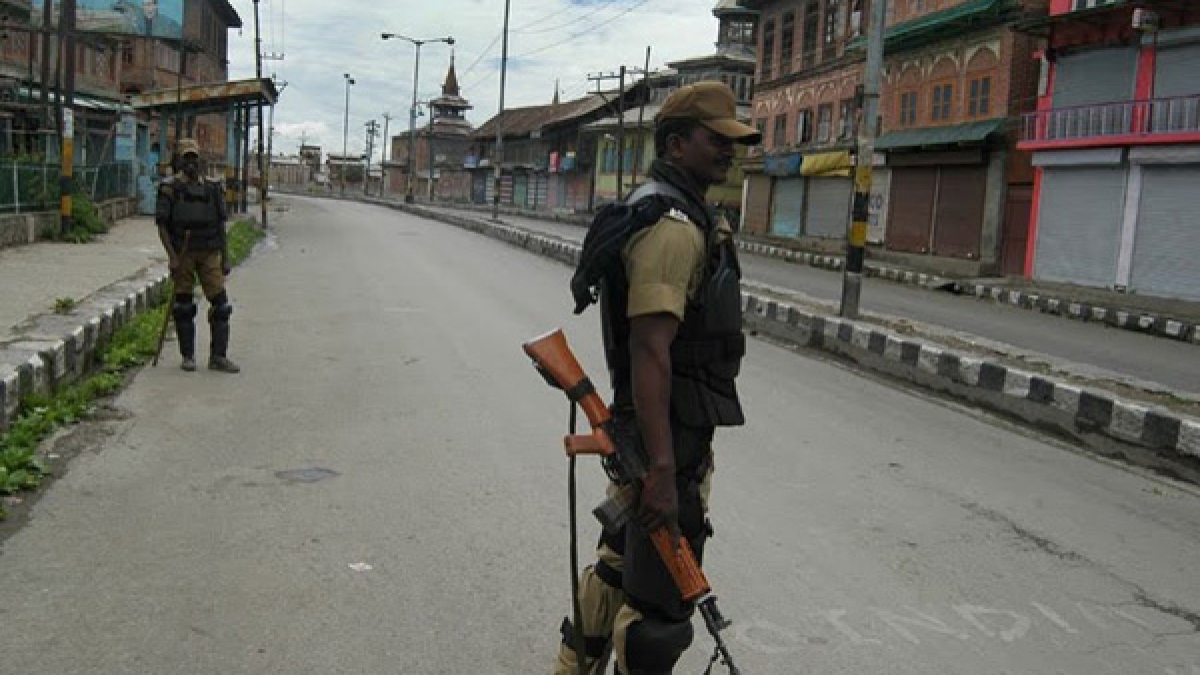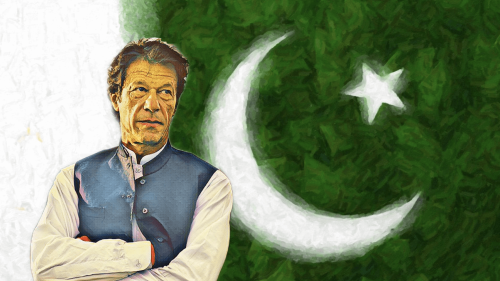Kashmir reaches point of no return.

Once again tensions have risen in the Indian Sub-Continent - Again the main issue of contention Kashmir is the cause of the verbal duel between Indian and Pakistani politicians. The trouble started when Kashmiris and Indian troops clashed in Charar-e-Shareef town. The clashes left over forty Kashmiri civilians dead. Heavy fighting then broke out and an ancient mosque and a religious complex were destroyed. In other parts of Kashmir, Indian troops shot over a dozen Kashmiris.
And as this unfinished business in Kashmir went on vitriolic words were exchanged and political abuses hurled from each side of the border.
Indian Internal Security Minister Rajesh Pilot hit back at Pakistan, warning it to stay out of India's internal affairs. Pilot accused "hired agents" of Pakistan of burning down the 650 year old complex. Pilot also warned Pakistan against its "devilish interference" and threatened to accomplish this "unfinished task."
Pilot's jingoistic outbursts revealed the desperate nature of the Indian government. India already racked by internal problems and bogged in the Kashmir imbroglio must be worried and rightly so.
While economic progress goes on, the country is suffering from a myriad of problems. In Maharashtra and Gujerat the rising specter of communalism, fascism and intolerance is giving the Center a major headache.
The rising tension between the lower caste and the upper castes in states like U.P. also is adding more fuel to the burning fire. The upper castes are unwilling to share with others. Added to this is the fueling of hatred between the majority community and the minorities. All these ingredients of instability are of prime concern to the ordinary citizens of India who want peace and harmony.
Against the background of this is the Kashmir issue. Hot debates are going on across the length and breadth of the country and which, if not cooled, could result in a conflagration resulting in misery for the inhabitants of all parties. Pilot was off course and will probably "crash-land" if he does not cease to tone down his rhetoric.
The burning of the mosque and the complex after intense shelling by the army is but yet another indication of the heavy handedness of the authorities in dealing with the Kashmiris. Unlike previous incidents, where those holed up in places of worships were allowed to leave the authorities changed their tactics and resorted to force.
This was met by retaliatory fire from the Kashmiris incensed at seeing helicopter gunships over the sprawling religious complex. The free for all has widened the existing gap between the Indian authorities and the Kashmiris. A point of no return has been reached and distrust, hatred and suspicion by the Kashmiris is openly displayed against the Indian army.
The question arises as to what can be done to defuse the volatile situation which is brinking both countries to the brink of a conflict.
Already 20,000 people have died since the start of the uprising. Indian Human Rights Commission themselves focus on violation of human rights. Reports of kidnapping, rapes, torture and maiming of people fill pages. There have been several cases of brutality by members of the Border Security Forces. There have been instances of young Kashmiris becoming mad after being subjected through interrogation at the hands of the police.
In the light of all this, the government in New Delhi should make a reappraisal of the situation.
Instead of accusing Pakistan of burning the mosque and accuse it of inciting insurgency, Pilot should first take deep stock of the situation. There should be an evaluation of the present problem and an insight into the political situation be made. The question of the rights of the Kashmiris should also be addressed.
What most Kashmiris want is the recognition of their rights. Kashmir is not a border issue. Nor is it a territorial dispute. It is the asking of the God-given right of self determination. They are unhappy at the way they are being repressed and subjugated. They aspire to be like others. The tragedy is that politicians on both sides of the border view the Kashmiris from their own political prism.
On one side, tears are being shed for their plight and I suspect whether some of them are genuine. On the other side any quest for self determination is perceived as a rebellion and as such is put down by the unnecessary use of force resulting in deaths. Charges of infiltration by "foreign mercenaries" and the cooperation given to them by the local Kashmiris are being leveled. The media has hyped the whole situation.
All these charges and the subsequent use of force has not quelled the demonstrations in Kashmir Protesters braving bullets and bombs are venting their anger against the Indian authority by burning police stations and government buildings.
The people of Kashmir have had enough and no amount of force can put them down.
They are now prepared for the ultimate sacrifice in order to achieve their goal - a right to have a say in their own affairs. A right that will be dictated and tailored by their needs.
It is therefore important that India and Pakistan first induce an acceptable atmosphere by refraining from charges and counter charges. It is more so important that India end the Kashmir blood bath by restraining its trigger happy army. It is also of vital importance that Kashmiris offer a truce.
However, all this cannot take place if first and foremost India recognizes that it has a major problem on its hands. A problem that cannot be brushed aside by jingoism and bravado. India has a moral duty to the Kashmiris and the world community to hold a plebiscite and let the Kashmiris decide their fate. India's political policy needs a reawakening and infusion of a sense of realism.
Times have changed. But aspirations of the people of Kashmir have not. And like people everywhere, the Kashmiris too dream of freedom and self determination. And they want this dream to turn to reality.
And only when India realizes that this reality can be achieved without harming the interests of everyone in the area, will peace too be obtained. And for the sake of the peoples of the area we hope it will be achieved soon.
The sub-continent cannot afford another war.

















